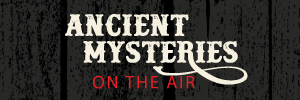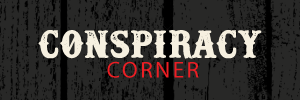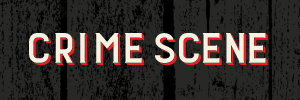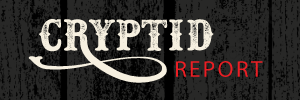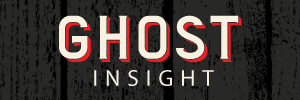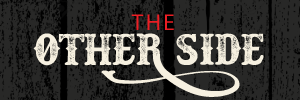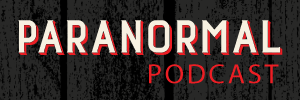Jan 24, 2022
Maine has a lot of strange creatures in its history, we discuss them with author Christopher Packard.
You can find his book on the subject at Amazon: Mythical Creatures of Maine: Fantastic Beasts from Legend and Folklore
Thanks Christopher!
TRANSCRIPT
Please note we do not guarantee 100% transcript accuracy. The below reflects a best effort. Thank you for your understanding.
Jim Harold
Bigfoot. Nessie. Chupacabra. Are these and other purported monsters
the real deal? Or, are they really not more than a fantasy of those
who want to believe? We'll ask those questions on, The Cryptid
Report.
Welcome to The Cryptid Report. I am Jim Harold, and so glad to be with you again. And whether we're talking about things like cryptids, like we do on this show, or ghosts, or UFOs, or whatever the spooky subject might be, I love when we kind of drill down and take a look at specific areas of the world and of the country. And we're going to do that today with the great state of Maine. And we're going to talk about the recent book, Mythical Creatures of Maine: Fantastic Beasts from Legend and Folklore. And our guest is the author of that book, Christopher Packard. He is a high school science teacher in Bangor, Maine. And he's also been involved in environmental work, including Park and Ecosystem Restoration in Northwest Ohio, my home state, and a Naturalist Fellow and Instructor at Eagle Bluff Environmental in Minnesota. His writing has been published in local papers and journals in Maine. And again, the book we're talking about today, just recently out Mythical Creatures of Maine. Christopher, welcome to the show today.
Christopher Packard
Thanks so much for having me.
Jim Harold
So let me ask you this, you know, being a high school teacher,
what- what made you want to write this book about these mythical
creatures of man?
Christopher Packard
That's a great question. So, you know, the- the irony of being a
professional scientist, and I was a professional botanist and
outdoor science educator for a long time before going to a
classroom. But the irony of, like, studying these mysterious
creatures that are beyond the scope of science, and don't have all
the evidence needed to be officially scientific creatures, and-
and- and spending my life teaching students to actually think about
evidence based reasoning is- is a really interesting thing. And I
think what it comes down to is, I originally got into science,
because I was interested in the magic and the discovery of nature.
Like, that there's stuff out there, and that we're still constantly
discovering it. We're-- science is a process and we're collecting
new evidence all the time, in order to build a better understanding
of the world. And as a young person, I was intrigued by cryptids.
In fact, like Bigfoot and Loch Ness Monster were my, of course, the
perennial favorites. And- and the idea that there were these
creatures out there that we might find, and that we-- people were
searching for was intriguing. So that was actually part of why I
went into science. And then I got sort of into the hard science,
and actually became a botanist for a while. But, I eventually sort
of came back to that. I never really gave up on this idea that
there's always more to discover. But I had grown up hearing here at
Maine, where I'd spend the summers, these stories about these
mysterious creatures that my grandfather would tell, and I kinda
thought he, he was a professional guide, and a trapper, and a
construction worker, you know, a good Yankee fellow.
Jim Harold
(Laughs).
Christopher Packard
(Laughs). And- and I kind of thought he had made all these
creatures up, and never really thought much more about them. Until
I picked up an old book about folklore in New England and saw that
these creatures that he had told me about and told me to go looking
for and said, "Oh, this is a sign of that guy." They were in these
books of old folklore. And so, I really got intrigued by this idea
that people have been telling stories about mysterious creatures
right here. Ones that I'd never heard of, right here in Maine for
centuries. And I really kind of dug down into that, and decided I
wanted to collect all of these stories that people had been telling
about mysterious creatures. And one thing led to another, and I
ended up with a list of over 40 different creatures that come from
across the cultures that have lived in Maine, and put them into the
book. And I just think that it's an important way that people can
connect with the land they live on, is to understand these stories,
these ancestral stories, that people have been telling each other,
to connect them to each other and build community and also connect
them to the land for effort. It's just part of human nature. And,
you know, and I think they're probably based in some truth. A lot
of times at least.
Jim Harold
Now, for people who, you know, the first, second, and third thing
they think of when they think of Maine is Stephen King, (although,
I love Stephen King, but, you know, there's a lot more to Maine
than Mr. King), maybe set the stage for us. The geography of Maine,
the size of Maine, how much of it is developed is to kind of
wilderness, which I know is quite considerable. Talk to us a little
bit about Maine, if we're not from New England, so we kind of
understand the lay of the land, as it were.
Christopher Packard
It's a pretty average state, for an East Coast state, in overall
size. It's actually the same size as the- all the rest of New
England put together. But unlike the rest of New England, or like
the rest of New England, most of the population lives on the coast.
And the rest of the state, is actually fairly sparsely populated,
there's a couple cities inland, but for the most part, the whole
North and Western, probably half of the state or more, is actually
an area that has some of the lowest density east of the
Mississippi, anywhere. It's- it's lumber country. So, unlike most
of the West Coast, sort of wilderness areas, which tend to be
federally owned, or government owned, the land here has been being
worked as timber country, by, you know, lumberjacks and paper
companies for, you know, the past couple 100 years. And it's open
to public use. And it's sort of got a whole bunch of logging roads
through it, and a whole bunch of empty space. A whole bunch of
places where people don't go an awful lot of times. So there's a
lot of space for stuff to be out there. And- and these lumberjacks
that have been working in the woods, whether they were English, or
French, or Irish, would tell stories about these mysterious
creatures that could be found out in there, ranging from things
that were kinda like Bigfoot and sound like that, to some things
that sound kind of ridiculous, and some things that sound downright
terrifying. And then there's also all the Native American people.
There's still-- there's three federally recognized Native American
nations that live here in Maine, and they're called the Wabanaki.
And they have a living tradition of stories of mysterious creatures
that they have been talking about, and knowing are just as real as
the the bear, and the moose, and the deer, and the fish, that they
depend on for living back in ancestral times. And they, you know,
the people, who are alive in those nations today still- still tell
stories about that. And they're pretty well recorded in that
anthropological record as well. And- and so there's a lot of deep
history in this intersection of a whole bunch of cultures. And
unlike the-- a lot of the rest of the country, this is one of the
first areas that was settled in the United States. And so, we
really have these deep connections in this sort of lore and
understanding of the things that are here, and that are out there.
And- and I think Stephen King does draw on some of that mystery,
and that deep history that Maine really enjoys. Whether it's in the
coastal towns, and our relationship with the waters and the mystery
there. Or whether it's in the deep forest, and the spirits, and the
monsters that live there, and people have been talking about scared
of for centuries.
Jim Harold
Now, I've got to ask you about this. I mean, it seems like every
state has their version of Bigfoot. They call it something else,
but it's kind of like a Bigfoot. Does Maine have a creature like
that, or creatures like that?
Christopher Packard
There's certainly plenty of, with all the empty space and a lot of
outdoor recreation, there's certainly a lot of modern Bigfoot
sightings. But, if you go back to sort of like colonial and early
settlement times, what you're going to hear about is these stories
about Wild Men, or hairy apes, that live in the woods. And so, you
hear that from sort of the European immigrants, and then there's
some- some hairy humanish-- humanoids that can be found in Native
American stories and lore and knowledge; such as the Wendigo, but
they don't call it the Wendigo- the Wendigo here. It's the Chenoo
or the Kewok. And those creatures can sometimes be mistaken for
Bigfoot, though, you definitely do not want to meet one of those.
And the French settlers and- and people who live here, we have a
very large-- it's the second most common language in the state. All
the French Canadians who immigrated here, and some of the first
colonists to settle were actually French Acadians. They told
stories of, sort of, a hairy creature that was also pretty fearsome
called the Loup-garou, which is spelled more like, "loop guru." And
this is a French werewolf, or Dog Man. So I don't know if you
would-- that sort of has its own spin and isn't really Bigfoot. But
we do have some- some hairy, bipedal humanids- hominid stories of
creatures that are running around in the Maine woods. And there's
an awful lot of sightings of Bigfoot these days as well.
Jim Harold
Something else that always fascinated me, because I always joke on
the shows, and I'm very honest about this. You know, depends on
what day you asked me, if-- whether I think there's really
something to Bigfoot. One day, I'll say, "Yeah, there's too many
people seeing it of goodwill-- kind of like your story about your
grandfather. Decent, good people, telling stories, and not
everybody's making it up." So that's- that's maybe on a Monday,
then on a Tuesday, it's kind of like, "Well, they've never found a
body, They've never found, even, any kind of remnants of anything.
So it's not real." And then on Wednesday, I'll have a different
opinion. But I will say this, when it comes to cryptids, the thing
I absolutely believe in, is the idea of water monsters. Because if
you look at something like the ocean, for example, it's said that
we know less about the ocean than we do about space. So, I very
much believe that water monsters could be a thing. What about Maine
and water monsters? Because I know you have a lot of lakes, of
course, you're on-- your coastal and so forth. I mean, there's got
to be a lot of opportunity for water monsters.
Christopher Packard
Absolutely. We have saltwater monsters and freshwater monsters, in
fact. Maine is, well, the area from Massachusetts, up to the coast
of Maine, is actually the densest region of sea serpent sightings
of anywhere in the Atlantic Ocean. So there's over 200 sightings
from that area. The Massachusetts coastline is very close to- to
the Maine coastline. Maine sort of curves over- over the top of
Massachusetts rather than being directly north, we call it down
east, in fact. And so, for that area in there, that is a place
where this undulating, sort of, large headed sea serpent that swims
with an up and down sort of humped motion, and it holds its head
above the water, ranging from anywhere from 20 to 100 feet in
length, has has a ton of sightings. And people of all sorts of
different backgrounds, whether they were retired admirals or
generals in the army, whether they were ministers or government
leaders, or fishermen, or all sorts of people, have seen and
describe this type of creature. Now, unfortunately, the sightings
of that creature have sort of dropped off a little bit since the
1930s. And some people have sort of linked that to also the drop
off of the cod fishery here and some of the sea run fish. And so
maybe it's be-- you know, it stopped coming into the area. And
also, motorboats became a lot more of-- you know, became the
dominant type of fishing vessel and recreational vessel at that
time, and so maybe the motor noise escaped them away. But there
certainly is a deep, deep history of these undulating giant sea
serpents, and there's some amazing records of that. And they--
there's a nickname for this creature, who's called Cassie after the
Casco Bay right off the coast: right- right- right in front of
where Portland, the largest city of Maine is, and that's where a
lot of sightings have been, but it's all up and down the coast. We
also have a lot of freshwater sea serpents, both River and Lake
monsters. These are described similarly sometimes. But there's also
these port sea serpers, horned lake and river serpents called the
Weewillmekq that are in the stories of the- the Wabanaki native
peoples, and they have these sort of-- they have a soft body and a
thick slimy cover. They live under waterfalls. And they'll float
along the surface of lakes. And sometimes, when people try to get
over them, they'll- they'll tip the boat, or rock the boat, and
they can, you know-- they're- they're considered quite fearsome,
and were one of the most feared creatures in the early Wabanaki
people's worldview. There's also serpents that are just large
snakes that are found in that, and seen by both colonists, and
lumberjacks, and French Canadians, as well as Native Americans. The
serpents are typically described as, like, black and very large,
there's petroglyphs that describe them and show them on the rocks
in both the Machias River Bay and also on the Kennebec River, two
of our larger rivers here in Maine. So, we definitely have our
share of Sea and Lake serpents of a variety of sorts, that are
backed up by all sorts of sightings and reports. And there's a
whole group of Lakes called the Machias Chain Lakes in the eastern
part of the state that are well known for their murky water, and
having some of the densest sea serpent or lake serpent, rather,
sightings of anywhere in the freshwaters in the state.
Jim Harold
Now, in terms of cryptids, you know, there- there's kind of the
idea of a flesh and blood cryptid. It's just an animal we haven't
discovered yet. And then there's the idea of the cryptid, who takes
on kind of supernatural powers; maybe the power to mesmerize
people, or maybe the power to disappear or appear out of thin air.
In your work with these mythical creatures of Maine, have you come
across some of these creatures that have supernatural powers?
Christopher Packard
Yeah, and actually, to be honest, as a scientist, I think that if
we- if we allow ourselves to believe that maybe why we can't find
these creatures, is because they have a spiritual or mystical basis
that actually gives them the ability to go beyond what we can
observe and repeat and record in a more, you know, sort of modern
scientific way. This- this idea that creatures on everything in the
universe is very fixed. And that the universe is fixed is a very
recent change to the human mindset. You know, early Europeans, and
of course, the Native Americans, have a worldview that actually
treats these creatures like fairies, and werewolves who can
transform shape. Or fairies who can step into another realm. Or
these balls of light that can lead people astray and then poof,
disappear. Or the sea serpent, or lake serpents, that can
mesmerize, you know, people and actually lead them into these
waters, so that they can never be seen again. Were commonplace and
the Native Americans, and French farmers, and hunters, and
lumberjacks, and people who- who spent their life living close to
nature in a way that we don't understand. In a way that their life
was dependent on understanding how and why things in nature work
the way they did. They would talk about these creatures, and the
transforming Loup-garou, or the- the Chen- the Chenoo- the Wendigo,
that could grow to enormous size or, you know, appear almost
regular human size. You know, that was just ordinary. And they
spoke about them in the same way that they would talk about the run
of the salmon up the river, or the hibernation of the bears. They--
the Native American languages in the area actually have a different
conjugation for things that are ancient and mythical in nature,
compared to things that are being described that are current, and
that are here, that you could encounter. And they describe these
creatures, these people whose very lives depended on understanding
everything about nature, would talk about these creatures with
these magical abilities. And so, I think we're really limiting
ourselves to this narrow worldview. And if we don't believe we're
going to see something, then we're not going to see it. We're going
to find ways to disbelieve it. And these- these, even these events,
when we have these fantastic experiences, they almost become unreal
after a certain amount of time. I'm always intrigued by how people
have replaced the idea of, like, a werewolf, this transforming
shape-changer that's a universal story, and theme, and fundamental
belief to people in Europe, that they-- people are uncomfortable
with this idea that- that a biological being could change shape.
But our ancestors knew that that's in fact, something that
happened. And and we've replaced the werewolf with this idea of a
Dog Man, that it's a species that is around and mating and, you
know, had, you know, you could find evidence of. And so I think
it's a real shame that we've gone away from the truths and the
worldview that allows for magic and permeability, and this idea of
active co-creation with nature, that can allow us-- these creatures
to actually have an existence in a way that's meaningful and
changes our relationship with nature and with the world. So I
think- I think, yeah, we definitely absolutely have a ton of those
creatures. And I think it's pretty likely that that's the way in
which these creatures exist.
Jim Harold
So is it fair to say just because a creature is mythical, doesn't
mean that it doesn't have some basis in reality?
Christopher Packard
Absolutely. I think that's very fair. In fact, when I use the word
mythical, what I actually mean is in the anthropological sense.
Like a myth. It's like a fundamental belief of our culture; the way
we view the world. I don't mean it like it's fake, like it's
something that's been debunked, like it's some old fashioned idea
that's not as good as modern ideas. It's this idea of, that's how
we see the world. This is a different way of seeing the world in a
way that our ancestors, that people, that humans all across the
world have these similar experiences of little people, transforming
half animal hybrids, cannibal giants. All sorts of things:
monsters, water monsters, sea serpents. These are things that
people see everywhere. And I think there's, you know, that's a huge
amount of evidence; that the people whose lives depended on knowing
nature and needing to know nature the best all the, you know, the
world as able to have this fundamental transformative magic.
Jim Harold
If there was one creature that you cover in the book that you think
has the greatest percentage chance of being rooted in reality, that
you're convinced existed or exists currently, which one would it
be?
Christopher Packard
Ah, well, you mean like verifiable by science?
Jim Harold
Like, well, I- I'm not saying that's 100% about verifiable by
science. But if you had your gut reaction, if you said, "Out of
these 40-something creatures, I've got to pick one that I believe
exists or has existed when," --not that you have certifiable proof
of it. Metaphysical, certifiable, 100% certitude, like the late
John McLaughlin used to say on his TV show, but- but just your
hunch, Chris Packard, your hunch. "Yeah, this existed or it exists
now."
Christopher Packard
Um... (Laughs).
Jim Harold
Tough question, I know not an easy one.
Christopher Packard
It's a trick question, because I think there's a good chance that a
lot of them exist. But they exist in this way: that science and our
view, if we're too attached to our view, that everything needs to
be in this fixed, repeatable, observable way, to exist and that we
deny its reality. I mean, like look at like cryptocurrency and
stocks, science can't prove those exist, but we treat the world as
if they exist. And so therefore, they do exist, right? Like we live
our lives, people retire on this belief that accompany will
actually have value in future. And if we stopped believing it, the
value drops to zero. You know, so I think a lot of them exist in
that way. I think some of them-- some of the creatures in my book,
really were-- some of the creatures my grandfather told me about,
for instance, were actually just made up. But you know, they're
still a mythos about the way of living in the world. They teach
valuable lessons. As far as things that I think are like real, I
think it's the things that our ancestors thought were real. That
they knew that fairies were real, they knew that sea serpents were
real, that lake and river monsters were real. They knew that
Will-o'-the-wisps were visible, you could see balls of light
floating through the air. They knew that those-- that there were
mermaids and Loup-garous, and you did certain things to avoid them.
And so, I think maybe those creatures do exist, in a way, but I'm
not sure that science in its current iteration can find them in a
way that science would be able to describe. And this coming from a
person who has a pretty strong science background.
Jim Harold
Now, if you had to pick, and this could be, you know, whether you
think it exists or not, just. you think the coolest creature,
what's your favorite?
Christopher Packard
Well, my-- some of my favorites are some of the most ridiculous
that my grandfather told me about. These- these creatures that sort
of explained strange going ons in the woods, the- the Wedge-Ledge
Chomper, who can hunched down and disguise himself as a boulder,
but also can carve out rocks and create landslides, and so you
gotta be on the lookout for him. Or the Dingmaul, the Peltin
Thumper, this big cat that will lay around on big rocks, sort of
looking out over the valleys. And if you come up on them and
startle them, or make them happy, (and it's never quite clear how
you could make them happy) they'd start swinging their tails
around. They- they- they have a big heavy ball on the end, and they
break the trees down into- into, you know, just little splinters
and knock it over. And, you know, you don't want to get on their
bad side. So, like, some of those lumberjack creatures are a lot of
fun. But I love the magic and the lessons that some of the Native
American, and some of the stories about, like, some of the Native
American monsters tell us and warn us. Like the- the stories of the
Wendigo and the Chenoo, as they're called here, actually convey-- I
think are really powerful lessons for society. And they're
terrifying and a lot of those same lessons about being part of
community, and not being a cannibal, and things like that, are
echoed in the- in the stories of the Loup-garou, the French
werewolf story. And so, I love these ideas of these universal
themes, about the creatures that really teach us about ourselves
when we tell these stories about these creatures, and they also
teach us to respect nature. And so, those are- those are really my
favorite, is some of the fearsome Lumberwoods Creatures, as they're
called, that my grandfather would talk about. And also those- those
truly terrifying monsters that our ancestors would actually talk
about, and- and that some people, like, including Stephen King,
base their stories around and still resonate with us today, and
have lessons to teach us. Also, of course, a special place in my
heart for Will-o'-the-wisps, floating orbs of light, because that's
the one thing that I've definitely seen myself in the woods. Was
with somebody else, and these little balls of light, about the size
of, say, a ball- bowling ball, go floating through sort of halfway
up the tree trunks as we were sitting there on the shore of the
lake. And- and at night, they just kind of drift on by, and we both
watch them and go, "Oh, my gosh, did you see that?" And, you know,
people have real experiences. And- and I think it's important that
we sel- share those stories. And- and those stories are- are the
best part of this whole study of cryptids, and mythological,
legendary, and folklore creatures. Where today, we're the folk, and
were telling the stories about what we believe in, and what we have
experienced, and how we interpret the world today. And that's what
I really love about all this stuff.
Jim Harold
You know, something that I really enjoy about your point of view
is, you know, I've done the shows for a long time, we're talking
almost 17 years now the various shows I've been doing on the
supernatural. And more than once, I've heard the claim, "you don't
believe in science!" And then on the other side, you know, you get
folks who, you know, they mean, well, but they believe that
everything's a ghost, and everything is- are aliens, and everything
is supernatural. And I kind of like this idea of kind of a third
way, a middle ground, where you can acknowledge and respect
science, but you can also acknowledge and respect the fact there's
a lot of things that we don't understand. And somehow we can try to
meet in the middle. And really, the idea of the supernatural and
science aren't necessarily diametrically opposed. You've just got
to adjust your thinking a little bit. I appreciate that.
Christopher Packard
I think you really nailed it there, Jim.
Jim Harold
Yeah, I really feel like, you know, it doesn't have to be an
either/ or. I mean, what we're doing right now, people might say,
"Oh, you're just on a zoom call, no big deal." But I mean, 20 years
ago, you had to be Ted Koppel and be on Nightline. Now that'll be
lost on some of the younger folks in our audience, but I mean, you
had to have a satellite to do what we do now. And I'm doing it out
of my home studio. I mean, it's amazing to me, the things that
science have allowed us to do. Not to mention, you know, our
current crisis notwithstanding, you know, science... or even the
development of vaccines so quickly. Amazing what our science has
done. I would never disrespect that. On the other hand, you talk
about the indigenous people, I don't want to disrespect them
either, and all of the people who have said that they have seen
things. And just to reject it out of hand, and say they're all
lying? I have a very difficult time doing that.
Christopher Packard
Yeah, I mean, that's- that's what it comes down to. Really, that's
very well said.
Jim Harold
So, I didn't mean to hijack the show, but just that kind of-- I
love the idea of both science and the spiritual working together.
Very, very interesting. And I think it's a great way forward. If
people want to find out more about your work, and your way forward,
and the book, Mythical Creatures of Maine: Fantastic Beasts from
Legend and Folklore. Where can they find it, Christopher?
Christopher Packard
Well, I've got a website with a blog, and I do-- I try to do weekly
blog posts where I talk about new folklore that I've discovered, or
sometimes expand on some things in the book. And that's
christopherpackard.com. And I'm also, of course, on face- social
medias like Facebook and Instagram, where I have links to my blog,
and also do some additional posting there, as well. And of course,
the books are available wherever fine books are sold. Any bookstore
can get it for you, and of course, all the big online stores as
well. It is traditionally published by a longtime regional
publisher right here in Maine, which I'm proud to support, called
Downeast Books.
Jim Harold
Very good, and we'll have a link in the show notes, as well.
Christopher Packard, thank you so much for joining us today to talk
about the Mythical Creatures of Maine: Fantastic Beasts from Legend
and Folklore.
Christopher Packard
Thank you so much. I really appreciate being here. And this has
been a great conversation.
Jim Harold
And I hope that everybody will check the book out if you're
interested in cryptids. And you're listening to this show, so I
think that you are. We'll talk to you next time. Have a great week,
everybody. Bye bye.

